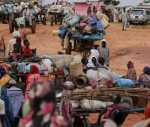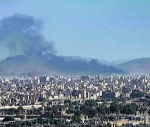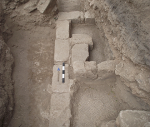You are here
How to face the sectarian storm
Aug 09,2015 - Last updated at Aug 09,2015
Recent major developments — political, security and others — in the Middle East represent a challenge that seriously jeopardises the identity of the region. In addition, the complex “ethnic-religious” atmosphere increases the risks emerging from psychological divisions that now dominate the minds of many Arabs.
One of the most pressing challenges facing the region today is the idea of the failure of coexistence among its peoples due to sectarian, religious and ethnic differences. This will lead to a long-term fragmentation of all Middle Eastern countries.
Moreover, it is very interesting to notice the new “atmosphere” that currently prevails in Iraq and Syria with a remarkable impact on the entire region. For example, Christians — who represent an essential component of historic Iraq — have been more vulnerable since the collapse of the Iraqi regime in 2003. This critical situation is now widespread, like in Syria, and a strong problem is emerging, namely the creation of a Middle East without some essential parts of its social fabric. The “map of power” in Iraq today suggests dividing the country into three parts consisting of Kurds, Shiites and Sunnis. Meanwhile, a different separation is planned in Syria, which consists of Sunnis, Kurds, Alawites and Druze, and does not include many others such as Christians.
Therefore, there is a concrete risk that some essential components of the Middle Eastern identity will not be a part of the new Middle East. In particular, it seems evident that Christians are already considered a minority from the new demographic prospective. On the demographic level, this phenomenon is mainly caused by the continued emigration of young Christians to the West, and also by the uncontrollable waves of radicalism invading Arab societies.
This strong political division in the Middle East aims to reduce the presence of many components in the region, mainly Christians. There is a growing threat, especially now, not only against Christianity and Christians but even secular Muslims, from Daesh and other terrorist groups, mostly the fake moderates who have tried hard over the last 50 years to eradicate “the other” who is different from the Middle East.
Today, it is necessary to adopt a short- as well as a long-term strategy, the primary element of which should be to strengthen the concept of diversity by recognising the “National State”. Actually, it is the only way to guarantee pluralism and put an end to the proclaimed sense of superiority of some groups. This will require effective collaboration between the various progressive forces in society to strengthen the idea that religion is a cultural identity and not a religious identity. Only by doing this can diversity, pluralism, liberty, respect and human dignity be guaranteed.













